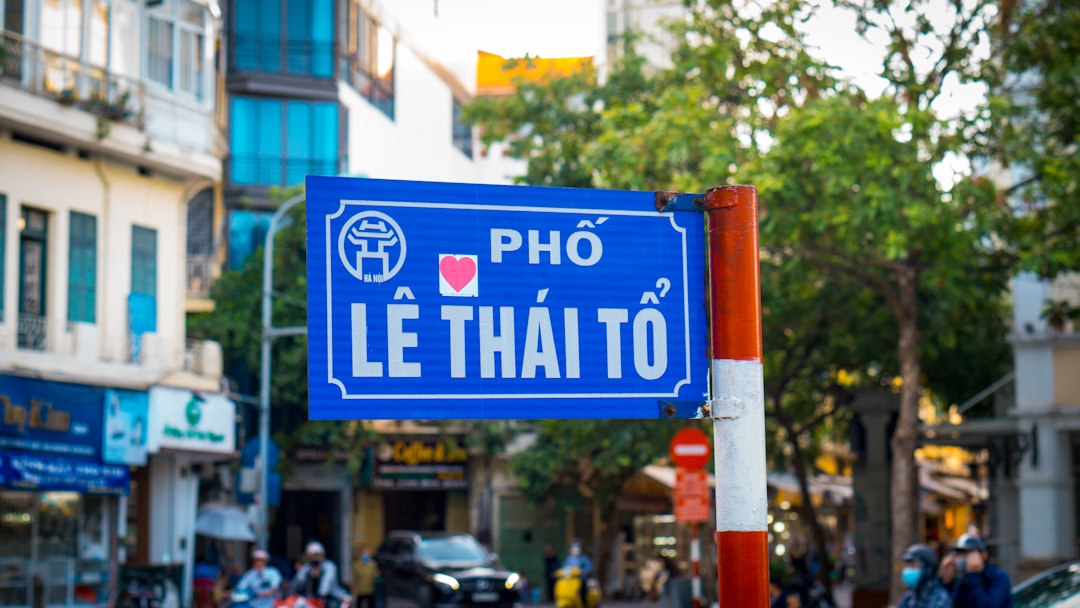Guide to Thai Language: Essential Basic Phrases for Beginners
The Thai language, also known as ภาษาไทย (Phasa Thai), is the national language of Thailand. With its unique script, tonal system, and courteous expressions, Thai can seem complex to beginners. However, learning some basic phrases will greatly enhance your travel experience, foster local friendships, and demonstrate respect for Thai culture. This article introduces you to the essentials of Thai: greetings, polite expressions, numbers, food ordering, asking for directions, and more. Tables are included to make learning easy and practical!
Thai Pronunciation Basics
Before jumping into phrases, it's helpful to understand a few core points:
- Tone: Thai is a tonal language. A single word can have different meanings depending on the tone (mid, low, falling, high, rising).
- Gender Politeness Particles: End sentences with ครับ /kráp/ for men and ค่ะ /kâ/ for women—this makes your Thai polite!
- Script: Thai script is different from the Latin alphabet. Romanization is often used for beginners.
Essential Thai Greetings
| Thai Script | Romanization | English | Who Says It |
|---|---|---|---|
| สวัสดี | Sà-wàt-dii | Hello/Hi | Everyone |
| สวัสดีครับ | Sà-wàt-dii kráp | Hello (male) | Male speakers |
| สวัสดีค่ะ | Sà-wàt-dii kâ | Hello (female) | Female speakers |
| ลาก่อน | Laa-gòn | Goodbye | Everyone |
| สวัสดีตอนเช้า | Sà-wàt-dii ton châo | Good Morning | Everyone |
| สวัสดีตอนเย็น | Sà-wàt-dii ton yen | Good Evening | Everyone |
| ราตรีสวัสดิ์ | Raa-dtree sà-wàt | Good Night | Everyone |
Introducing Yourself
| Thai Script | Romanization | English |
|---|---|---|
| คุณชื่ออะไร | Khun chêu à-rai? | What’s your name? |
| ฉันชื่อ [Name] | Chán chêu [Name] | My name is Name |
| ผมชื่อ [Name] | Pǒm chêu [Name] | My name is Name |
| ยินดีที่ได้รู้จัก | Yin-dii tîi dâai rúu-jàk | Nice to meet you! |
Polite Essentials and Courtesy
| Thai Script | Romanization | English |
|---|---|---|
| ขอบคุณ | Khàawp-khun | Thank you |
| ขอบคุณครับ/ค่ะ | Khàawp-khun kráp/kâ | Thank you (polite) |
| ขอโทษ | Khǎaw-thôot | Sorry/Excuse me |
| ใช่ | Châi | Yes |
| ไม่ใช่ | Mâi-châi | No |
| ไม่เป็นไร | Mâi-bpen-rai | It's OK/No problem |
Numbers 1–10
| Thai Number | Thai Script | Romanization |
|---|---|---|
| 1 | ๑ หนึ่ง | nèung |
| 2 | ๒ สอง | sǎawng |
| 3 | ๓ สาม | săam |
| 4 | ๔ สี่ | sìi |
| 5 | ๕ ห้า | hâa |
| 6 | ๖ หก | hòk |
| 7 | ๗ เจ็ด | jèt |
| 8 | ๘ แปด | bpàet |
| 9 | ๙ เก้า | gâo |
| 10 | ๑๐ สิบ | sìp |
Ordering Food
| Thai Script | Romanization | English |
|---|---|---|
| ขอเมนูหน่อย | Khǎw mee-noo nòi | May I have a menu, please? |
| อันนี้ราคาเท่าไหร่ | An-níi raakhaa tâo-rai | How much is this? |
| อร่อย | A-ròi | Delicious |
| ไม่เผ็ด | Mâi phèt | Not spicy |
| เผ็ดน้อย | Phèt nɔ́ɔi | Little spicy |
| น้ำ | Náam | Water |
Asking for Directions
| Thai Script | Romanization | English |
|---|---|---|
| ไป…ยังไง | Bai… yang-ngai? | How do I get to…? |
| ห้องน้ำอยู่ที่ไหน | Hâawng-nám yùu tîi-năi? | Where is the bathroom? |
| ซ้าย | Sáai | Left |
| ขวา | Khwăa | Right |
| ตรงไป | Dtrong-bpai | Go straight |
| ใกล้/ไกล | Glâi / Glai | Near / Far |
Common Questions and Answers
| Thai Script | Romanization | English |
|---|---|---|
| คุณพูดภาษาอังกฤษได้ไหม | Khun phûut phaa-sǎa ang-grìt dâai mǎi? | Can you speak English? |
| พูดช้า ๆ หน่อย | Phûut cháa-cháa nòi | Please speak slowly |
| เข้าใจ/ไม่เข้าใจ | Khâo-jai / Mâi khâo-jai | I understand / I don’t understand |
Survival Vocabulary
| Thai Script | Romanization | English |
|---|---|---|
| ใช่ | Châi | Yes |
| ไม่ใช่ | Mâi-châi | No |
| ช่วยด้วย | Chûai dûuai | Help! |
| อันตราย | An-dtà-raai | Danger! |
| โรงพยาบาล | Roong phá-yaa-baan | Hospital |
Cultural Notes
- Wai Gesture: Bowing slightly with palms pressed together at chest level is a standard, polite greeting.
- Politeness is Key: Using ครับ/ค่ะ (kráp/kâ) softens requests and displays respect.
- Smiles: Thais are known as the “Land of Smiles”; non-verbal communication is as important as words.
Practice and Usage Tips
- Listen and Imitate: Watch Thai movies or YouTube channels to hear real usage.
- Practice with Locals: Don’t be afraid to speak! Thais appreciate any effort to use their language.
- Repeat Daily: Consistency turns strangers into friends and tourists into travelers.
Conclusion
Learning Thai basics isn’t just about words—it's about building connections and opening doors in a beautiful, rich culture. Whether you’re visiting Thailand, connecting with Thai friends, or simply fascinated by the language, these phrases will serve as your foundation. Remember to keep practicing, smile, and have fun discovering the rhythm and beauty of Thai!
Suk-san dee – Have a good time! (สุขสันต์ดี)
